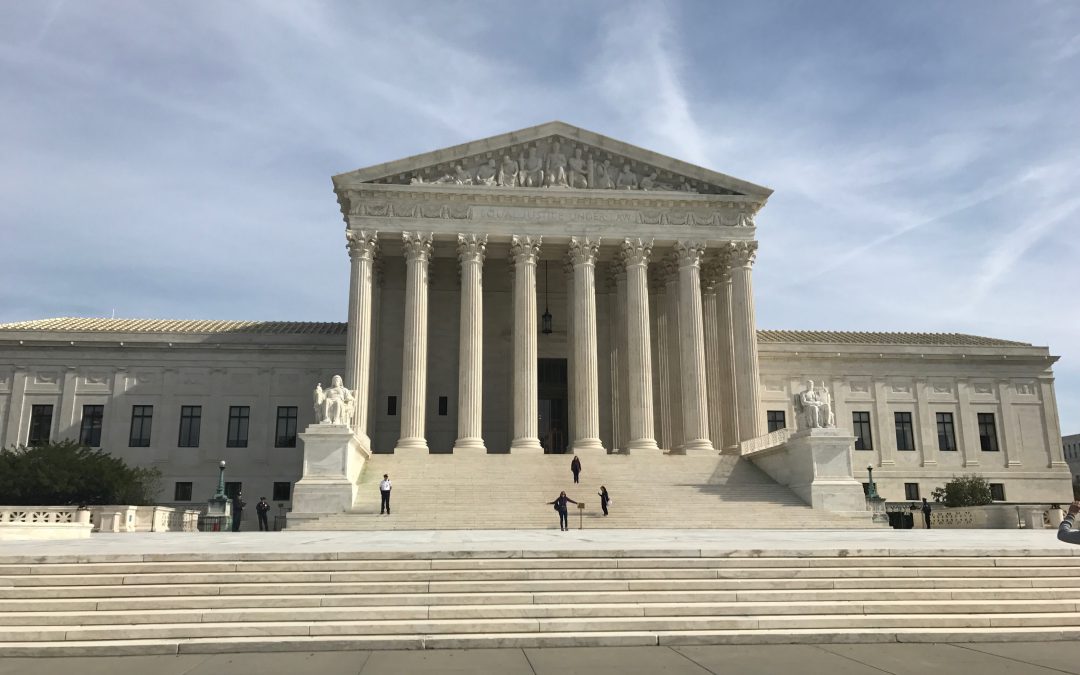WASHINGTON—Supreme Court justices had tough questions for both parties Wednesday during oral arguments in a case that could determine judicial jurisdiction over Indian tribes.
The case concerns a parcel of land in Washington state purchased by the Upper Skagit Indian Tribe, parts of which, Charlene and Ray Lundgren contend, belongs to them. The claim is based on a long-standing wire fence on the parcel purchased by the tribe. The Lundgrens say that is where their property ends, but the tribe said the parcel extends beyond the fence.
To incorporate the land into their reservation, the tribe needs Interior Department approval, but the Lundgren family asked a Washington state court to decide the ownership of the land.
Because it is a federally recognized tribe, the Upper Skagits claim sovereign immunity from lawsuits on their land, meaning courts have would have no jurisdiction. The Supreme Court is being asked to decide whether a state court has jurisdiction over land that is claimed to belong to a sovereign tribe.
Justices grilled the lawyer for the Skagit tribe on what the long-term implications of their argument might be.
“What are the Lundgrens supposed to do in this situation if they can’t bring legal action affecting the tribe?” Chief Justice Roberts asked David Hawkins.
Justice Stephen Breyer agreed that sovereign immunity makes it difficult to resolve land disputes.
“If members of the tribe acting for the tribe obtain property, they have a building or an empty lot or somewhere,” Breyer hypothesized. “And there’s another person who believes he owns the property, how is that dispute resolved? Normally, we resolve it in a court.”
But groups writing in support of the Skagit tribe say that sovereign immunity is integral to establishing self-sufficient economies on land bases and protecting against land grabs.
An amicus brief filed on behalf of the National Congress of American Indians argues that the history of American Indians clearly demonstrates why tribes should be immune from lawsuit sover land.
“One of the main purposes of sovereign immunity is to safeguard government property,” the group argued in its brief. “That purpose has even greater force for Indian tribes, which have far fewer resources than state and federal governments, and which already have been dispossessed of much of their land and resources.”
Justice Ruth Bader Ginsburg said the lawyer for the Lundgren family appeared to be switching arguments. The original lawsuit had focused on a claim that the Upper Skagit tribe had no interest in the land, but Ginsburg pointed out that lawyer Eric Miller now claims this is a case about jurisdiction or property law and should not be influenced by the sovereign status of the Upper Skagit tribe.
“Mr. Miller, this was — is an argument that you have pressed vigorously here but it has nothing to do with the decision of the Washington Supreme Court,” Said Bader-Ginsburg. “Are you presenting an alternative while at the same time defending what the Washington Supreme Court decided? Or are you saying, never mind what they’ve decided, this immovable property exemption takes care of it?”
The Skagit tribe has struggled with land issues for over a century, since an 1885 treaty in which they ceded much of their territory to the federal government. In 1981, Interior Secretary James Watt established 74 acres of unconnected land as an initial reservation for the Upper Skagit Tribe, which they have been expanding by purchasing land.


